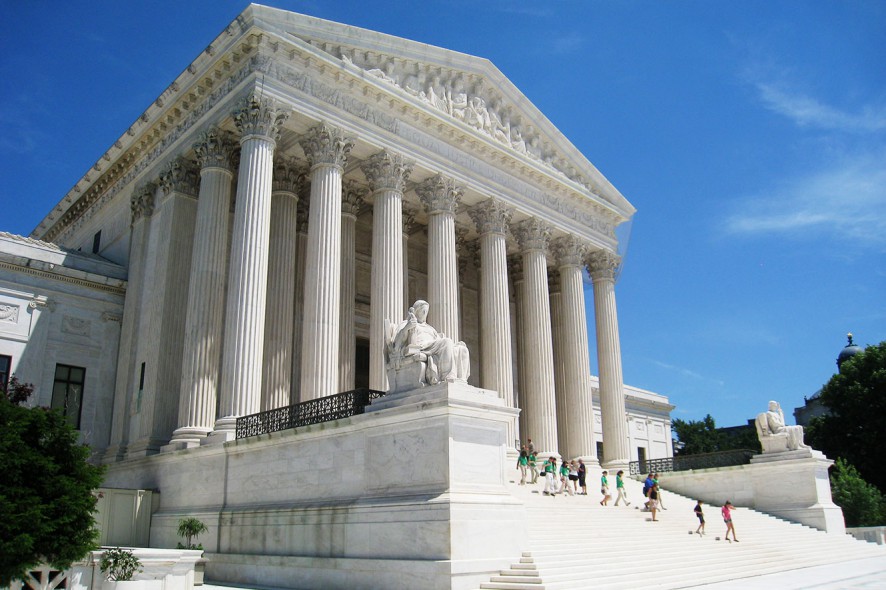Supreme Court of The United States: In a landmark decision affecting the immigrants in the United States of America, the 9 Judge Bench of the Court headed by John G. Roberts, CJ., with a ratio of 5:4 held that, the Department of Homeland Security’s decision to rescind the immigration relief program known as Deferred Action for Childhood Arrivals (hereinafter DACA) can be judicially reviewed under the Administrative Procedure Act by the Supreme Court.
The Court further held that the DHS’ decision to rescind DACA is arbitrary and capricious. The majority included John Roberts, CJ., Ruth Bader Ginsburg, Elena Kagan, Stephen Breyer and Sonia Sotomayor, JJ.
In 2012, the DHS introduced a memorandum announcing the DACA, an immigration relief program which allowed certain unauthorized aliens who arrived in the United States as children to apply for a two-year forbearance of removal. Those granted such relief become eligible for work authorization and various federal benefits. Some 700,000 aliens have availed this relief. However, during the early presidential years of Donald Trump (current President of the USA); the DACA was rescinded citing legal flaws. In 2017 the DHS clarified that it would no longer accept new applications, but existing DACA recipients whose benefits were set to expire within six months could apply for a two-year renewal. For all other DACA recipients, previously issued grants of relief would expire on their own terms, with no prospect for renewal. The rescission was challenged on the grounds of arbitrariness; violation of Administrative Procedure Act and infringement of the guarantee of equal protection under the Fifth Amendment’s Due Process Clause. The Government contended that DACA Memorandum is a general non-enforcement policy; hence the rescission of the same will not be reviewable under the Administrative Procedure Act (APA).
Scrutinizing various legal aspects surrounding the issue, the majority observed that the DACA did not merely decline to institute enforcement proceedings; it created a program for conferring affirmative immigration relief. Additionally, by virtue of DACA, 700,000 recipients may request work authorization and are eligible for Social Security and Medicare. Access to such benefits is an interest for which courts often are called to protect; therefore the rescission is subject to review under the APA.
It was further observed that when the Attorney General determined that the DACA is illegal, it was the DHS’ responsibility to best address the determination which involved important policy choices and providing sufficient explanation for the decision to rescind DACA. However, the Attorney General’s conclusion regarding the illegality of DACA was seen as sufficient reason to rescind both benefits and forbearance, without explanation. Thus, absence of a ‘reasoned analysis’ itself renders the rescission as arbitrary. Moreover, the Government failed to adhere to the principle of ‘legitimate reliance’ on the DACA Memorandum. It was observed that, “DHS has flexibility in addressing any reliance interests and could have considered various accommodations. It was required to assess the existence and strength of any reliance interests, and weigh them against competing policy concerns. Its failure to do so was arbitrary and capricious”.
Samuel Alito, Brett Kavanaugh, Clarence Thomas and Neil Gorsuch, JJ., delivered the dissenting opinion. They observed that the majority opinion is an effort to avoid a politically controversial but legally correct Government decision. [Department of Homeland Security v. Regents of the University of California, 591 US (2020), decided on 18-06-2020]






